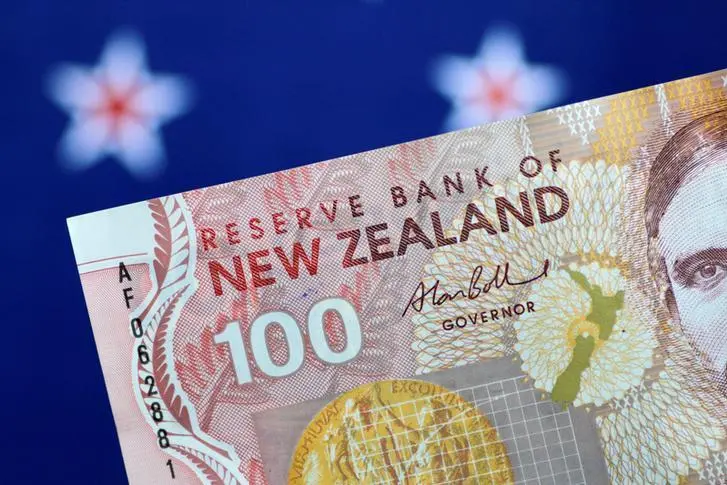PHOTO
WELLINGTON - New Zealand's central bank raised interest rates by 50 basis points to a more than 14-year high of 4.75% on Wednesday, and said it expects to keep tightening further as inflation remains too high, a hawkish signal that sent the local dollar surging.
The Reserve Bank of New Zealand (RBNZ) said it was too early to assess the policy implications of the recent devastating cyclone and floods in the country's North Island, and expects to look past the short-term price pressures stemming from the "extreme weather events".
The RBNZ continues to expect the official cash rate (OCR) to peak at 5.5% in 2023, according to the monetary policy statement (MPS) accompanying the rate decision. That would mark the most aggressive policy tightening streak since the official cash rate was introduced in 1999.
"While there are early signs of price pressure easing, core consumer price inflation remains too high, employment is still beyond its maximum sustainable level, and near-term inflation expectations remain elevated," the central bank said in a statement.
The decision was largely in line with a Reuters poll.
The latest policy statement from the RBNZ, which was among the first global central banks to withdraw pandemic-era stimulus, suggests the bank is in less of a hurry than many of its peers in shifting to smaller rate increases after a sweeping series of rapid-fire moves.
INFLATION CHALLENGE
The New Zealand dollar rose as high as $0.6246 after the decision, reflecting the hawkish tone of the statement, having traded as low as $0.6206 earlier. It was last fetching $0.6238.
The two-year swaps are currently at 5.26%, compared to 5.18% at start of day, and markets are now pricing an OCR peak of 5.38% verses 5% two weeks ago.
"There was some speculation that the RBNZ would keep the OCR on hold for the time being," ASB Chief Economist Nick Tuffley said in a note to clients.
"But the impacts of weather disasters will only make the RBNZ’s job of curbing inflation more challenging," he said. ASB expects another 50-basis-point rate increase in April, and Tuffley noted there was some risk the RBNZ will do more over time.
New Zealand's annual inflation is currently running near three-decade highs of 7.2%, well above the central bank's medium term target of 1%-3%.
Addressing a post-policy press conference, RBNZ Governor Adrian Orr said inflation is expected to hit 7.3% in the first quarter before easing.
"The business cycle is such that inflation pressures are very strong and inflation is too high. So the direction of our official cash rate was straightforward," Orr added.
WEATHER CONUNDRUM
Flash floods hit New Zealand's largest city of Auckland in late January and two weeks later Cyclone Gabrielle caused havoc across much of the North Islands. The two events left 15 people dead and have caused billions of dollars of damage.
While the rebuild will boost the economy and inflation - already an issue for the central bank - growth is set to slow in the short term. "The Committee acknowledged the significant regional impacts that the severe weather events will have across New Zealand, and agreed that the government’s fiscal policy response would be more effective at addressing these, rather than any monetary policy activity," the central bank said.
The RBNZ continues to expects New Zealand to slip into a recession in the second quarter of this year, but sees growth rebounding in the first quarter of 2024, earlier than its previous forecast.
"Given the likely medium-term inflation impacts of the cyclone, we see the risks around our forecast 5.25% OCR peak as now tilted to the upside," ANZ bank economist said in a note.
"However, like the RBNZ, we’re in wait-and-see mode until the picture becomes clearer."
(Reporting by Lucy Craymer Editing by Shri Navaratnam)





















